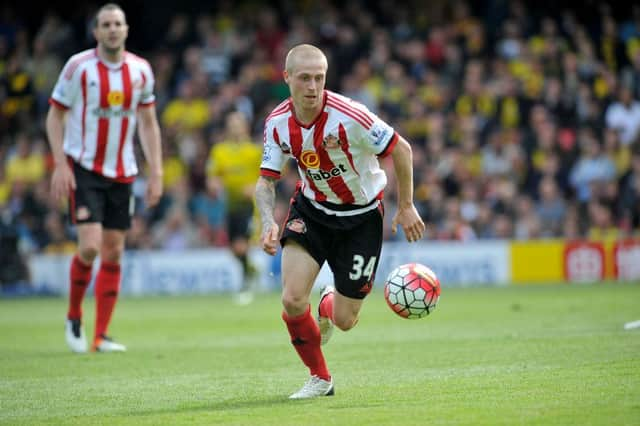DAVID JONES: Sunderland must retain Wearside core if hotbed of football claim is to be true


Those of us with a little more local knowledge will point out that 140 miles separating Wearside and Humberside hardly constitutes a derby but we should welcome another club from outside the traditional power houses of London and the North West.
The more clubs from the north east coast amongst the elite of English football the better in my book.
Advertisement
Hide AdAdvertisement
Hide AdThe region as a whole has had little to shout about in the last couple of decades: football brings some cheer, a sense of pride and belonging, binding communities in a way only sport can in the modern world.
Understandably there was a great deal of celebration at Newcastle’s demise – particularly in the circumstances of this season when it came down to them or us – but the league will be poorer for their absence.
Like every Sunderland fan the Wear-Tyne derby was always the first game I looked for when the fixtures came out; we will miss those two matches: the build-up, the rivalry, the tension and naturally the points.
They will be back – perhaps sooner than some would like – and our wider region might then boast 20 per cent of the Premier League!
Advertisement
Hide AdAdvertisement
Hide AdIf that happens I’m certain you’ll hear talk again of football’s hotbed; a romanticised view that all is well in the world harking back to the days of Cloughie, Milburn and Sir Bobby.
The truth is very different.
In this big money era of the Premier League, football clubs are viewed as much as commodities as sporting institutions; it’s just as likely a Premier League club will spring up on the cerebral south coast as in the densely populated industrial conurbations.
It comes down to a question of ownership.
Bournemouth are bankrolled by the roubles of a wealthy Russian, Swansea have the power of the US dollar supporting their cause, Hull City are fluttering their eyes at prospective new owners while Middlesbrough remain untouched, for now.
Every club will be viewed as a cash cow capable of generating hundreds of millions from television revenue alone, and that’s just the start in relatively untapped markets like the United States.
Advertisement
Hide AdAdvertisement
Hide AdBut what of tradition? Does your average New Yorker know more about Manchester United than Crystal Palace?
The Eagles’ new majority owners certainly don’t think that’s the case. They view it as an arms race to capture the imagination of the American public before they miss out; they believe a century of history can be overtaken by the right marketing strategy led by the right narrative.
It doesn’t sound very romantic does it, but this is big business now and it’s getting bigger.
And in this arms race Leicester City have taken the lead: world over, everyone loves an underdog and their story of triumph has been retold right across the globe.
Advertisement
Hide AdAdvertisement
Hide AdSo newly armed with all this booty, will Hull and Middlesbrough fill their teams with local boys, will Sam Allardyce be looking to the academy to end Sunderland’s annual fight for survival?
On all counts it seems unlikely.
Be prepared for a summer scouring the internet for information on the raft of new signings piling into the Premier League from Europe and beyond.
Every club will have a League of Nations and Sunderland will be no different.
For north east boys brought up on a diet of football 24/7 it’s getting harder by the year to make the grade, only the very best will stand a chance.
Advertisement
Hide AdAdvertisement
Hide AdBut there’s real talent emerging at the Academy of Light and let us hope that with the inevitable raft of new arrivals – which we all want to see – there is still some space for our youngsters to grow.
Let us hope the future of Sunderland in this rich new world features a Wearside core: then we can start to talk about the return of the real hotbed of English football.